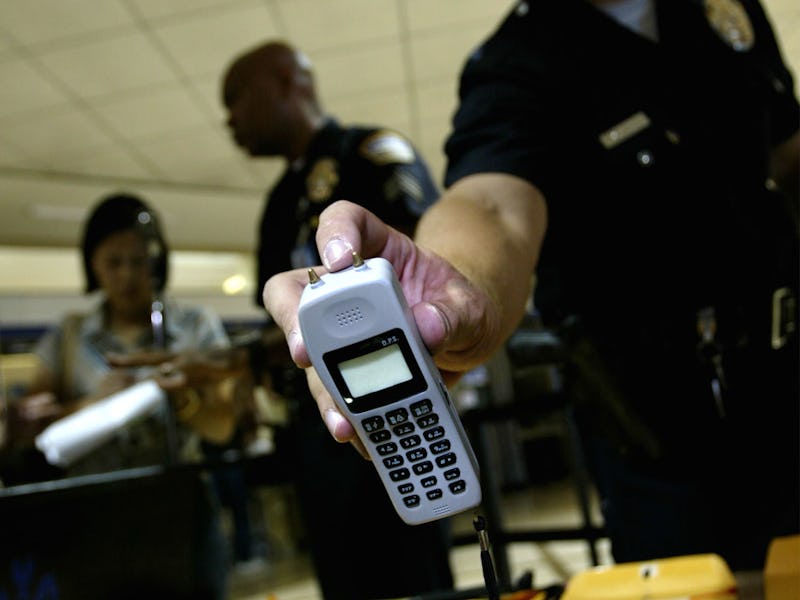This Year's E3 for Prisons Is All About Cell Phones
In the world of inmate contraband, tech is the new drugs.

The National Sheriffs Association’s annual conference opens its doors this week in Baltimore, E3 for the corrections industry. And just as E3 signals trends to watch for next gen consoles, the sheriffs’ conference tips what’s happening in the ongoing catch-up game jails have been playing as mobile phones become the microchipped equivalent of the shiv hidden in the mattress.
As International Business Times reports, a lot of companies are making appearances this year to sell new ways to keep prisoners from using a mobile, either by detecting them before they’re smuggled in or making them useless inside prison walls. Better defense would save corrections workers considerable time. California alone has confiscated more than 30,000 phones since 2012, claiming that inmates can use them to organize gang attacks or plan hits, or harass victims from behind bars.
The most widely accepted device seems to be the seven-foot phone-detecting wand from Cellsense, which scans an inmate’s prison cell the same way they’d scan you with a metal dector. It can also detect devices hidden inside the body, because this is prison we’re talking about.
More controversial is Tecore, a phone-blocking tech that leases airwaves from phone companies. If an inmate tries to make a call or send a text from within the pocket of those airwaves, which happens to be the jail, the phone is rendered useless and the phone spits out a recording to let them know they’re breaking the law. Tecore is more problematic as it can block phones from bystanders outside the jail as well, and could interfere with the jail’s ability to call 911 or other emergency services. Then there’s the effect on the pipes, as inmates have tried to flush the phones down the toilet once they realize they’ve got a worthless piece of contraband in their cells.
Even more controversial is the Stingray monitoring system, which monitors calls but which critics say could be used to spy on citizens who haven’t broken the law.
Remember, being caught with a phone in prison can add years to your time. In Florida, smuggling a mobile device in is a third degree felony with a maximum five year sentence. Yeah, you get a massive drug ring coordinated via text message once in a while, but a lot of inmates are risking the penalties simply to have a way to communicate with their loved ones. Maybe if we made it a little less prohibitively expensive for them to communicate through approved channels, they wouldn’t be quite so willing to risk it.